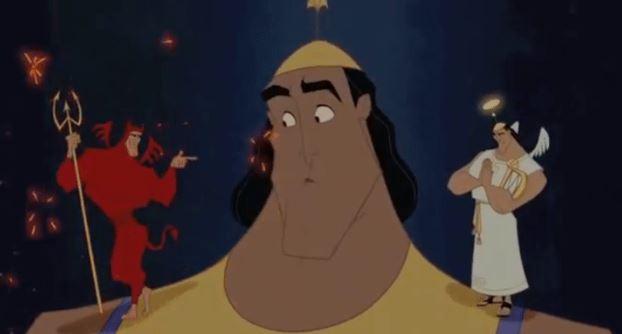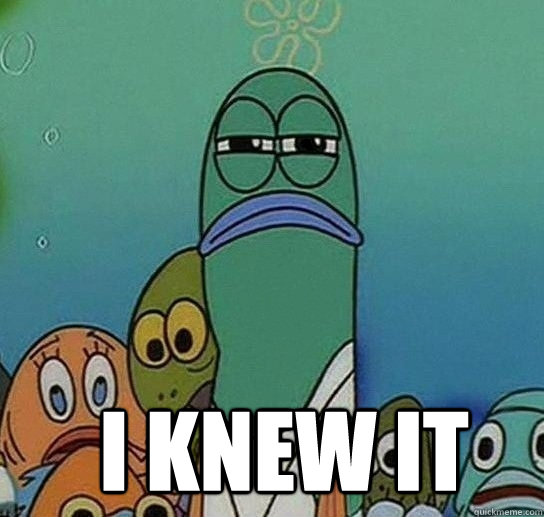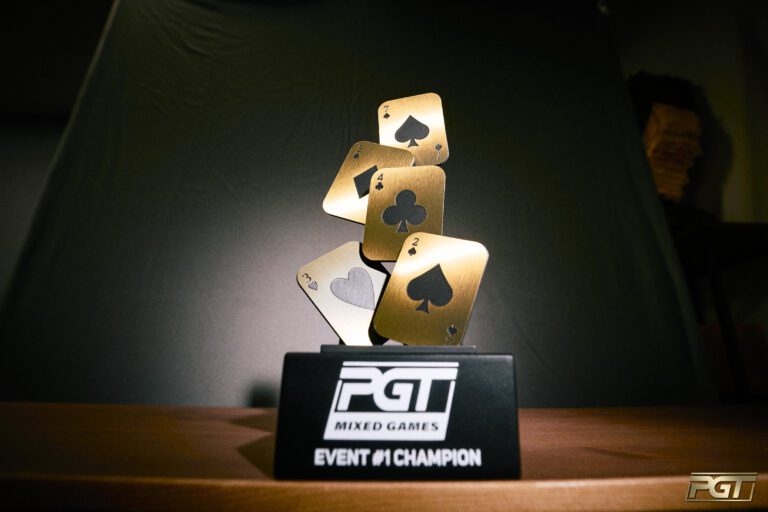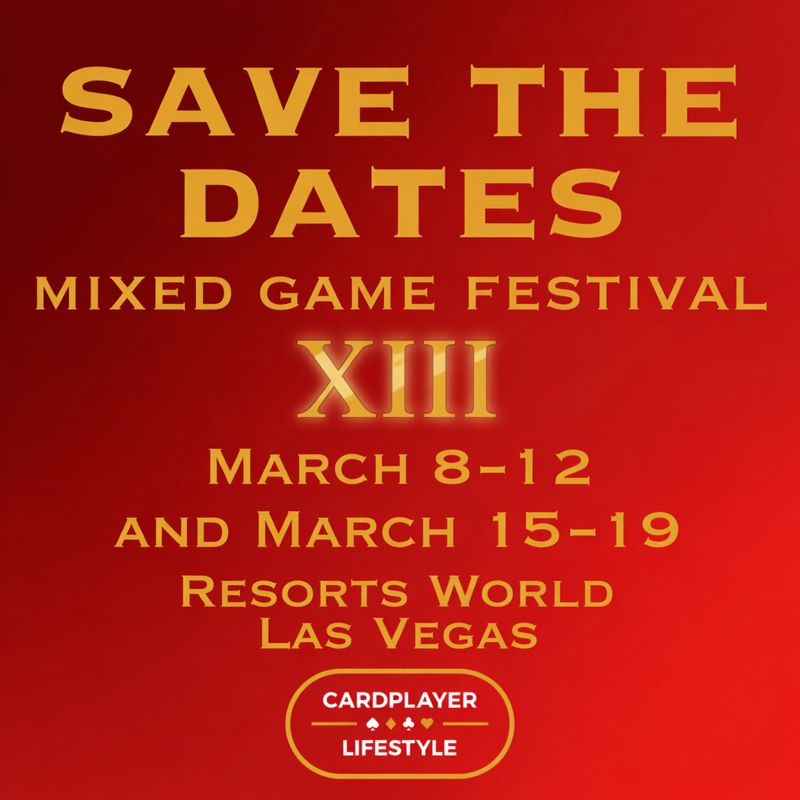There’s a constant battle raging in my head when I play live tournaments. Do I believe the math or the reads I have on my opponents? Obviously, it’s possible to factor my reads on my opponents into how I’ll act, but how much weight do I give them? How far do I stray from optimal play to take advantage of the things I see at the tables? A hand this morning in the $250,000 GTD tournament at the Wynn was a perfect example where I failed to trust what I saw.
Today is your last chance to get in on the action of the $600 Wynn Signature $250K Guarantee! 20K starting stack and 40 minute levels. Cards go in the air at noon with late reg. open until approx. 4:30PM. pic.twitter.com/wFbDEr6cW9
— Wynn Poker Room (@WynnPoker) April 21, 2018
The Hand in Question
At the 200/400 level, I raised under the gun to 1,000 with two red nines. The button and the big blind both called. This made the pot 3,600. I had about 25,000 in my stack. Both of my opponents had me covered. I wasn’t crazy about a QJJ flop with two clubs, but I watched my opponents carefully and didn’t see anyone jump out of their chair with excitement.
The math tells me that this flop hits a lot of their calling ranges, but if it missed them it missed them completely and they will fold to a small bet. I bet 1,400. This small bet folds out hands like AT and T8s that could draw out on me and gives me some definition on my opponents’ hands. It also gives them a chance to raise if they have a real hand. I didn’t think either of these players was going to bluff-raise in this spot and make me fold the best hand.
When you fold the best hand and the guy asks if you could beat his hand. pic.twitter.com/hyTP3MMaoc
— Gripsed (@GripsedPoker) August 22, 2016
If they raise, I fold. If they fold, I win. But if they call, I have a more complicated situation.
If one of them calls, they will have the following hands almost all of the time:
- A queen, for top pair, will happen some of the time. They may not check-raise this hand for fear that I may have an overpair or a jack.
- A flush draw with two clubs or a straight draw with KT or T9 is going to happen fairly often. These two draws are going to be quite common because they fit the range of hands people call a raise with and they fit the range my opponents would now call a bet with.
- A jack is going to be rare. Most of the time a jack will raise me because they will want to get value and will be afraid of the multiple draws on the board.
- A smaller pair is also a possibility. The smaller bet will keep a small pair in the hand much of the time.
- A hand like AT is also possible, though not very likely. It contains an overcard and an inside straight draw and they may think that adds enough equity to float and try to steal the pot if they miss their draw and don’t make a pair.
The majority of the calling range of my opponent’s are top pair hands and draws, with draws being the more common of the two. The fact that they will check-raise a one pair hand more often than a draw also makes the draws more common if they simply call my flop bet.
The Hand Continues
The button folded, but the big blind called. I didn’t have any significant read on him yet, but I kept watching him as the turn fell. It was an offsuit 6, and with no information I decided to keep the pot small and checked behind. This may get a busted draw to bluff into me and will keep the pot a reasonable size against some hands that are beating me.
The river was an offsuit four, and with no significant thought my opponent bet out for 2,800 into a pot of 6,400. Now I am getting 9,200 to 2,800, or better than 3:1 to call. Given the hand frequencies I already mentioned, it seems like an easy call. I am certainly going to win more often than 1 in 4 when I can beat more than half of the combos of hands in his range. This is a very profitable call with only this information.
But what about the quick bet?
It wasn’t a snap-bet, but it was quick and without significant thought. A recreational player would rarely bluff at this speed. They would take a second to get up the courage and decide what the correct number would be. Typically they would bet bigger than this as well. A bet of 4,000 would have been more likely to be a bluff from a recreational player. And he didn’t look nervous.
This player’s ability to bet without thinking or working up the courage told me that he probably had me beat. His bet sizing and the lack of stress indicators told me that it was probably a queen.
But I’m getting such good odds! And his hand ranges make this such an easy call without these tells!

I really felt like he had it. It looked like he had it. If you had offered me an even money bet on whether he had a queen in his hand, I would have bet at least $500 that he did have the queen. But this wasn’t an even money bet. And he could easily be bluffing a missed draw here. What do I do?
Oops…
I called. I knew in my heart that he had a queen almost all the time, but I called anyway. And he showed me Q8s and won the pot.
When he rolled over his hand, I felt like a fool. A mediocre player who only plays the math will chalk this up to one of the times when he had it and convince himself that he couldn’t fold there because the odds are too good and the hand frequencies make folding much too exploitable. There are a lot of ways to manipulate the math in this situation to justify my call.
But they are all wrong.
Because I knew he had it.

I knew that he had it way more than 1 in 4 times. If I make excuses and convince myself that the call was fine, I’ll never get better.
The great ones never make this call. When I’m playing well, I think I play as well as anyone, but today I wasn’t playing all that well. I was tired, I was not focused, and I was frustrated by some hands that hadn’t gone my way in the previous half hour. I was angry with myself after making this call because I knew I had chosen the worst of the three options.
Three options?!
Yes, you always have at least three options when someone bets into you. You can call, which was the worst choice. You can also fold, which was clearly a better choice. Or you can raise. And if you have the guts and are confident in your read, you can steal pots like this one with those raises. If I had raised to 11,000 I think my opponent folds more than 75% of the time. Once in a while my read is wrong and he has a jack. Sometimes he has AQ or KQ and he can’t let it go. But most of the time he assumes that I have been slow-playing a jack or two queens and he folds.
A bad player calls. A good player folds. A great player raises. Today I was a bad player. And today the tell was more important than the math.
All the game theory and combinatorics in the world will just hurt you if you can’t let go of them when your opponent tells you what his hand is. Both the math and the tells are important. It’s balancing the two and knowing which one to trust in every situation that makes a great player.
Tomorrow I will be that great player.








